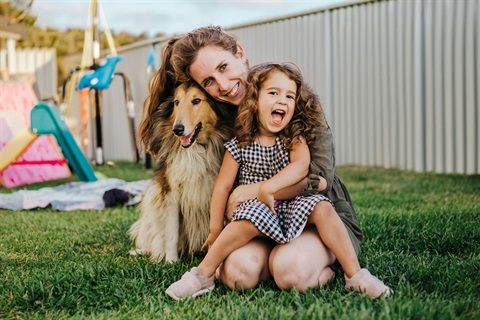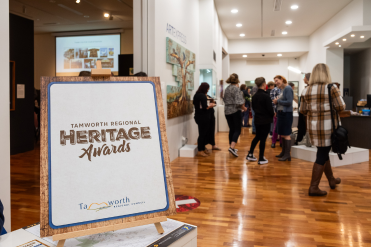From grassroots activism to corporate boardrooms, women are working to make a difference in the world through leadership. In celebration of International Women’s Day, we asked staff, students and alumni from across the University – what do we need to achieve an equal future where #womenlead?
These women are just a snapshot of the incredible leadership we see every day in our Sydney community.
Professor Anna Paradowska
Anna Paradowska is a materials engineer, ANSTO scientist and Professor in Advanced Structure Materials in the Faculty of Engineering. She is an international expert in the characterisation of advanced manufacturing processes and is a driving force in building a bridge between research and industry.

“Lots of progress has been made to increase access to education for girls and women, but it has been slow in improving the gender sensitivity of the education system. Schools alone can’t easily fix that problem, as it is not enough to ensure that our textbooks promote positive stereotypes to inspire girls. We need more reinforcement. I think the media – and in particular social media – have a role to play as they have access to places that formal education systems cannot reach.”

Professor Vanessa Lee
Dr Vanessa Lee, Yupungathi and Meriam, began her public health and education career over 24 years ago and is a social epidemiologist in the Faculty of Medicine and Health. She is a courageous, passionate, Aboriginal-Torres Strait Islander natural female leader for human rights and social justice. Dr Lee is an advocate across a diverse range of social justice issues for Aboriginal and Torres Strait Islander people, women and the LGBTQI+ population.
“We can achieve an equal future with leaders being brave to stand up in the face of adversity, to have the difficult conversations that include holistic ways of thinking and by modelling their behaviour on inclusivity.”

Jane MacMaster
Jane MacMaster (Bachelor of Engineering, Mechanical Engineering ’93) is Chief Engineer of Engineers Australia where her main purpose is to advance the science and practice of engineering for the benefit of the community.
“In my first job after graduating, it was against company rules for women to wear trousers (skirts only, and the length was stipulated). That’s unheard of now. While change seems frustratingly slow, it is happening, and we should look for ways to support women in the workforce until the systems catch up. We need to establish systems in which diversity in perspective and skillset is truly valued. This has always been important, but it is becoming increasingly important as the challenges we collectively face become more complex and interdisciplinary.”

Kirsten O’Doherty
Kirsten O’Doherty (Bachelor of Pharmacy ’84) is a pharmaceutical and life sciences industry leader. She is a governing council member and chair of the Strategy Committee at NeuRA, board member of Australia Dementia Network LTD and member of the Covid-19 Vaccines Science and Industry Technical Advisory Group advising the Australian Government on vaccines and treatments.
“We need to act to remove barriers that adversely impact women’s careers, particularly in improving access to flexible work environments, improving parental leave and childcare support, and ensuring pay equity.”
Dr Kudzai Kanhutu
Kudzai Kanhutu is an infectious diseases physician at Royal Melbourne Hospital and spearheaded the creation of the telehealth unit, which became critical during the COVID-19 pandemic. She also works in refugee health, board governance and as a science mentor for girls.

“The only way to achieve an equal future is to be brave enough to name the things that are unequal today. Recognising historical injustices, and gender, educational and health inequalities is the first step. You need to see these in your own life before we see it elsewhere.”
Kudzai is our 2021 UN Women MBA scholar and is part of our 2021 Global Executive MBA cohort. Read more about Kudzai and her scholarship.
Professor Lisa Adkins
Lisa Adkins is a sociologist and Head of the School of Social and Political Sciences in the Faculty of Arts and Social Sciences. She is known for her research on work and labour, economic sociology and inequalities of class and gender.

“Creating a more equal future has never been more urgent. I know from my research that on many important indicators we are actually going backwards and creating a more unequal society. To end inequality, we need to understand it. That means taking into account complex intersections of class, gender, ethnicity and race and the enduring legacies of colonialism. It also means acknowledging trans and gender diverse communities. COVID has upset the status quo and thrown us out of comfort zones. There has never been a better moment to imagine another world, to craft alternative futures for ourselves.”
Michelle Chan

Michelle Chen is currently a Bachelor of Science and Bachelor of Laws student at the University of Sydney. She leads as President of the Women in Science Society who are dedicated to supporting and growing a network of people in science who identify as women.
“We must continue to work hard to create a support network of strong and powerful women who are there for each other. By encouraging discourse and sharing our knowledge we will dismantle prejudices.”
Dr Shuxia Chen

Dr Shuxia Chen has worked in museums and art spaces for over a decade. She is the Curator of the China Gallery at the Chau Chak Wing Museum and an emerging leader in curating, publishing and teaching Asian art.
“We need to foster a culture of equality not just by legislation but also by building a public discourse on equality among all of us.”
Professor Olivia Hyde

Olivia Hyde is Director of Design Excellence at the Government Architect NSW (GANSW) and a Professor of Practice in Architecture at the University of Sydney.
“Equal numbers of women and men have been graduating from architecture schools for decades, so the issues for architecture are not at the point of education. The challenge is during professional life – women still represent a very small proportion of senior practitioners, meaning that Architecture remains highly male-dominated. To achieve an equal future, I believe it is time for the profession, specifically its male leaders, to act bravely and creatively to prioritise the advancement of women.”
Liza Lim

Liza Lim is Professor of Composition and Sculthorpe Chair of Australian Music at the Sydney Conservatorium of Music. She teaches across all cohorts and leads the Composing Women postgraduate program that aims to address issues around gender disparity and inclusion in music.
“Achieving equality is fundamentally about changing power structures. When so many forms of power are predicated on systemic suppression of one group over another, and a fear mindset, can we hack existing codes to value collaborative, invitational modes of thinking and acting? The Sydney Conservatorium’s Composing Women group has made this code shift, commissioning a ‘bust’ of the esteemed Indigenous composer Deborah Cheetham AO, as a gift to the University of Sydney library. It is a stunningly beautiful artwork and also a form of activism that critiques the deep erasures and exclusions of non-male artists from centres of musical power. It invites us to tell new stories about who and what counts in music.”








